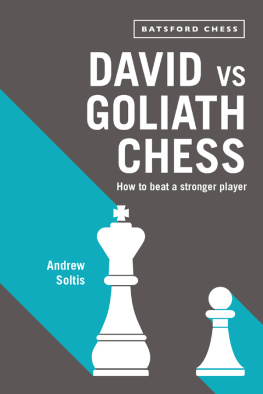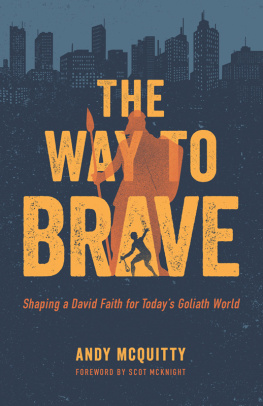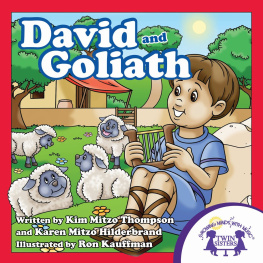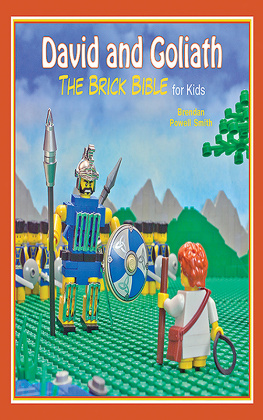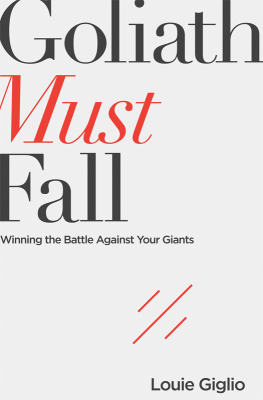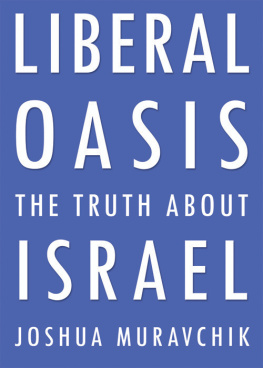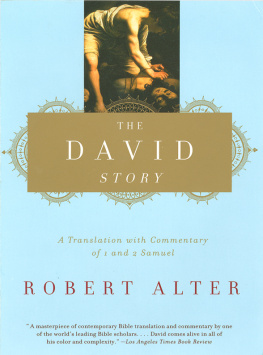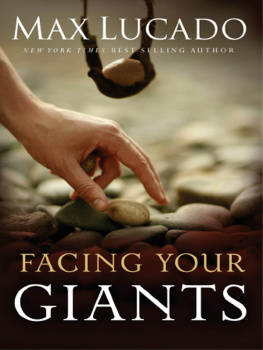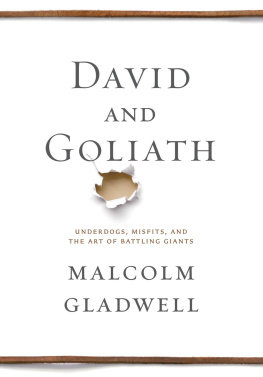


2014 by Joshua Muravchik
All rights reserved. No part of this publication may be reproduced, stored in a retrieval system, or transmitted, in any form or by any means, electronic, mechanical, photocopying, recording, or otherwise, without the prior written permission of Encounter Books, 900 Broadway, Suite 601, New York, New York, 10003.
First American edition published in 2014 by Encounter Books, an activity of Encounter for Culture and Education, Inc., a nonprofit, tax exempt corporation.
Encounter Books website address: www.encounterbooks.com
The paper used in this publication meets the minimum requirements of ANSI/NISO Z39.481992 (R 1997) (Permanence of Paper).
FIRST AMERICAN EDITION
LIBRARY OF CONGRESS CATALOGING-IN-PUBLICATION DATA
Muravchik, Joshua.
Making David into Goliath : how the world turned against Israel / Joshua Muravchik.
pages cm
Includes bibliographical references and index.
ISBN 978-1-59403-740-5 (ebook)
1. Arab-Israeli conflict. 2. Arab-Israeli conflictPublic opinion. 3. Public opinionUnited States. 4. IsraelPolitics and governmentForeign public opinion. 5. IsraelPolitics and governmentForeign public opinion, American. 6. Arab-Israeli conflictInfluence.
I. Title.
DS119.7.M844 2014
956.9405'4dc23
2013045687
For Isaiah, Aviv, Gabriel, Shai, Aaron, Erez, Ariel, and Quinn.
May the Lord bless you and protect you.

Contents


A great many people and institutions helped me in important ways as I worked on this book (and its companion e-book, Liberal Oasis: The Truth About Israel).
Two dear friends, Peter Collier and Neal Kozodoy, marvelous editors for whom Ive spent a good portion of my life writing, helped and counseled me every step of the way, and Peter also edited this book with his unfailing skill and insight.
The entire project was made possible by the kind and generous financial support I received from the Lynde and Harry Bradley Foundation, Paul E. Singer, the Gale Foundation, Roger Hertog, the Lisa and Michael Leffell Foundation, the World Affairs Institute, Elliot Hershberg, Malcolm Thomson, the Morris Weiser Family Foundation, David Schimel, Rebecca and Laurence Grafstein, Olivier Sarfati, Joseph Aiken, Samuel H. Solomon, David Angel, a couple of other generous individuals whom I wish I could name but prefer to keep their privacy. My friends Joshua Landes and Theodore N. Mirvis, in addition to each making generous gifts themselves, hosted a breakfast at which other funds were raised. My dear old buddy, James Denton, took the initiative of directing a grant to me even when I was reluctant to ask. The Emergency Committee for Israel underwrote a research trip I made to Israel. Last but far from least I want to say a special thank you to Dianne Sehler who has offered me encouragement and support for many years. I am deeply indebted to each of these individuals and organizations.
I am happy and honored to be a Fellow of the Foreign Policy Institute of the Paul H. Nitze School of Advanced International Studies (SAIS) of the Johns Hopkins University, and I am grateful to Dean Vali Nasr, Executive Director Carla Freeman, and Program Administrator Kristine Kuehl Kunkel, as well as to the fine reference librarians at the SAIS library.
I was most fortunate to be able to call on the resourcefulness and diligence of two outstanding research assistants, Jared Sorhaindo and Moran Stern, and also the work of three interns, Ari Grazi, Hannah Elka Meyers, and Zach Novetsky.
I benefitted greatly in my knowledge and understanding of issues touched on in this book from conversations with, among others, Michael Allen, Shlomo Avineri, Joel Fishman, Abraham Foxman, Jeffrey Gedmin, Manfred Gerstenfeld, Tom Gross, Yossi Klein Halevi, Martin Kramer, Adam Levick, Michael Lewis, Noah Pollak, Steve Rosen, Rob Satloff, and Alexander Yakobson. My wonderful daughter, Madeline Muravchik, translated some French for me. Jennifer Burns, Eric Lee and Justus Reid Weiner provided or led me to materials that were helpful. Tony Badran and Badih Chayban went to pains to find and translate a speech from Arabic. Jamie Fly took solicitous interest in my progress. Thank you all.
And finally I want to thank Sally, my beloved wife of many years whose patience is the sine qua non of my books.
I am most grateful to each of these people and to any others whom my weakening memory has caused me to omit, for which I apologize deeply.

In October 2009, a United Nations investigatory commission chaired by the Jewish jurist, Richard Goldstone, accused Israel of crimes against humanity during the three-week war in Gaza the previous winter. This extraordinary category of crime was invented for the Nuremberg trials following World War II, which condemned the surviving leaders of the Nazi regime for the systematic mass murder of Jews and others. Now things had come full circle: the Jews themselves stood accused.
This moment underlined a dramatic change in international opinion that would have seemed unthinkable a few decades earlier. Little more than forty years had elapsed since underdog Israel had fought a six-day war against its Arab neighbors in which the Western world had cheered for its victory. For example, in Great Britain, where attitudes toward Israel had been chillier than elsewhere in Western Europe, virtually every major newspaper editorialized in support of the Jewish state. The British government took it upon itself to introduce UN Security Council Resolution 242, which affirmed Israels right to live in peace behind secure and recognized boundariesa formula that implicitly endorsed alterations to the pre-war armistice lines to allow Israel more favorable borders. Efforts by the Arab states to rally support for their cause in the General Assembly, where London and Washington wielded no veto, were rebuffed, with a substantial number of states condoning Israels action.
But, by 2009, this sympathy seemed a distant memory in the United Kingdom and the rest of Western Europe, and the United Nations was arrayed overwhelmingly against Israel. Its Human Rights Council, which had created the Goldstone Commission, in the few years since its formation, had already adopted multiple resolutions condemning Israel for one thing or another, while rarely rebuking any other government even once. The Jewish state, once widely admired for its resolution never again to allow Jews to be targeted, now was denounced each time it raised its hand against murderous enemies.
In singling out Israel, the Human Rights Council was far from alone. Its predecessor, the UN Commission on Human Rights, had practiced the same one-sidedness, as had the UN General Assembly, which had lacerated Israel in countless resolutions, even going so far as to endorse terrorist attacks on Israel as legitimate resistance.
Next page

